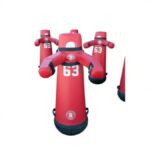Why This Question Matters
You’ve probably heard someone say, “Don’t drink distilled water—it dehydrates you.” But is that really true? If you’re a health-conscious reader, an athlete watching your hydration levels, or even a traveler curious about safe drinking water, the idea that water—the very thing meant to hydrate you—could cause dehydration is confusing.
Here’s the truth: the science is a bit more nuanced. Pure water won’t dry you out instantly, but the lack of electrolytes in pure water can disrupt hydration balance if it’s your only source of fluid. Let’s unpack this step by step.
Quick Answer
Pure water (like distilled water) doesn’t directly dehydrate you. However, because it lacks essential minerals, drinking it exclusively may lead to electrolyte imbalances over time. Hydration is more effective when water contains natural minerals like sodium, potassium, and magnesium.
EXPLORE MORE
What Do We Mean by “Pure Water”?

- Pure water usually refers to distilled water or reverse osmosis (RO) water, stripped of all minerals and impurities.
- Regular drinking water (tap, spring, or mineral water) contains small amounts of essential electrolytes that help the body absorb and balance fluids.
Why Does Pure Water Dehydrate You?

1. Osmosis and Hydration
Hydration isn’t just about drinking fluids—it’s about how your cells use them. Through osmosis, water moves in and out of your cells depending on electrolyte balance. If you drink only pure water, there’s a risk of diluting sodium and potassium levels in the blood, making it harder for cells to retain fluids.
2. Electrolyte Imbalance
Electrolytes are like your body’s hydration managers. When you drink water that contains no minerals, you’re not replenishing the electrolytes lost through sweat, exercise, or daily activity. Over time, this imbalance may cause:
- Muscle cramps
- Fatigue
- Headaches
- In extreme cases, hyponatremia (dangerously low sodium levels)
3. Distilled Water Dehydration Myth
It’s a myth that a single glass of pure water will dehydrate you. What’s true is that exclusive, long-term consumption of pure water without minerals may make hydration less efficient.
Difference Between Pure Water and Mineral Water
| Type of Water | Mineral Content | Hydration Effectiveness | Best Use Case |
|---|---|---|---|
| Distilled / Pure | None | Lower (long-term) | Lab use, appliances |
| Tap Water | Varies | Moderate to High | Everyday use |
| Mineral Water | Naturally rich | High | Hydration, sports |
| RO Water | Very low minerals | Moderate (if remineralized) | Safe drinking where tap is unsafe |
Is Pure Water Bad for You?

Not exactly. Pure water is safe to drink, but it shouldn’t be your only water source. Occasional consumption won’t harm you, but athletes, travelers, and anyone sweating heavily should pair it with mineral-rich water or electrolyte solutions.
Expert Opinions & Citations
- Harvard.edu explains that proper hydration requires electrolytes, not just water.
- MayoClinic.org notes that overhydration with plain water can dilute sodium in the body.
- WHO.int reports that long-term consumption of demineralized water may have health risks due to mineral deficiencies.
EXPERT ANSWERS
Does pure water actually dehydrate the body?
Not immediately. But over time, exclusive consumption of pure water can dilute electrolytes, which reduces hydration efficiency.
Why does distilled water not hydrate properly?
Distilled water lacks electrolytes like sodium and potassium, which help your body absorb and balance fluids. Without them, hydration isn’t as effective.
Can drinking only pure water cause electrolyte loss?
Yes. While pure water itself doesn’t remove electrolytes, drinking it in large amounts without replenishing minerals can contribute to an imbalance.
Is pure water safe for hydration?
Yes, it’s safe in moderation. But for optimal hydration, mineral water or balanced fluids are more effective.
Final Thoughts
Pure water won’t dehydrate you in a single sip. But if you rely on it as your exclusive source of hydration, you could face electrolyte imbalances that make hydration less effective. For everyday drinking, mineral water or remineralized RO water is the safer choice, especially if you’re active, traveling, or exercising.
FAQ’s
Q1. What happens if you drink distilled water every day?
You may not notice immediate issues, but long-term exclusive use may cause mineral depletion and hydration inefficiency.
Q2. Why electrolytes are important in hydration?
Electrolytes regulate nerve function, muscle contractions, and fluid balance. Without them, water alone can’t keep you fully hydrated.
Q3. Can drinking too much pure water be harmful?
Yes. Excessive intake of pure water can cause water intoxication (low sodium levels), especially in athletes or heavy sweaters.
Q4. Is it true that pure water pulls minerals from the body?
Not exactly. Pure water doesn’t “suck out” minerals, but it doesn’t supply any either, which can create a deficit if it’s your only source.
Author Bio
Written by Sara Malik – a professional health and science content writer with over 6 years of experience in creating evidence-based, SEO-optimized articles. Sara holds a background in biology and nutrition, and she’s passionate about making complex health topics simple and engaging for readers worldwide.
Sources & References
Lead Magnet Suggestion: Offer a free downloadable “Hydration Guide for Athletes & Travelers” with tips on electrolyte balance, safe water choices abroad, and daily hydration formulas.












